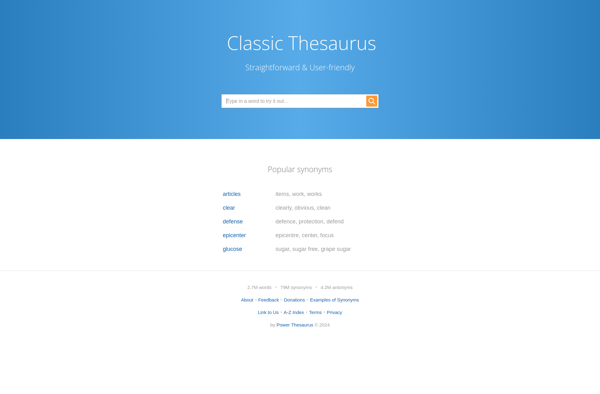WordNet
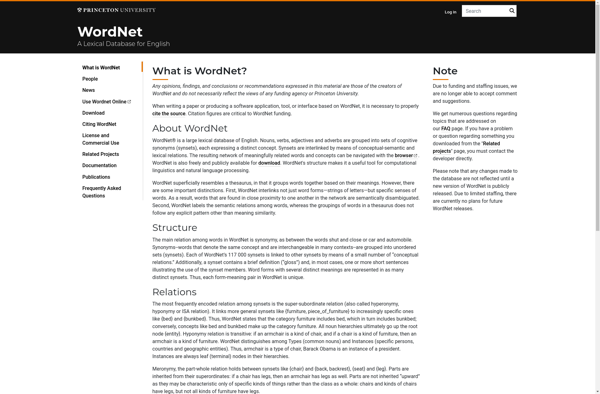
WordNet: Large Lexical Database of English
A comprehensive lexical database of English, grouping nouns, verbs, adjectives, and adverbs into sets of cognitive synonyms (synsets), each expressing a distinct concept.
What is WordNet?
WordNet is a large lexical database of English developed and maintained at Princeton University. Nouns, verbs, adjectives and adverbs are grouped into sets of cognitive synonyms (synsets), each expressing a distinct concept. Synsets are interlinked by means of conceptual-semantic and lexical relations.
The purpose of WordNet is to produce a combination of dictionary and thesaurus that is more intuitively usable, and to support automatic text analysis and artificial intelligence applications. WordNet superficially resembles a thesaurus in that it groups words together based on their meanings. However, there are some important distinctions. First, WordNet interlinks not just word forms—strings of letters—but specific senses of words. As a result, words that are found in close proximity to one another in the network are semantically disambiguated. Second, WordNet labels the semantic relations among words, whereas the groupings of words in a thesaurus does not follow any explicit pattern other than meaning similarity.
WordNet started in 1985 as a project led by psycholinguist George Armitage Miller at Princeton University. It has since been expanded and is now widely used by computational linguists, text analysts, and researchers in artificial intelligence and natural language processing.
WordNet Features
Features
- Large database of English words grouped into sets of synonyms
- Words are organized by meanings and relations between words
- Includes nouns, verbs, adjectives and adverbs
- Synsets are interlinked by conceptual-semantic and lexical relations
Pricing
- Free
- Open Source
Pros
Cons
Official Links
Reviews & Ratings
Login to ReviewThe Best WordNet Alternatives
Top Education & Reference and Dictionaries & Thesauruses and other similar apps like WordNet
Here are some alternatives to WordNet:
Suggest an alternative ❐Artha
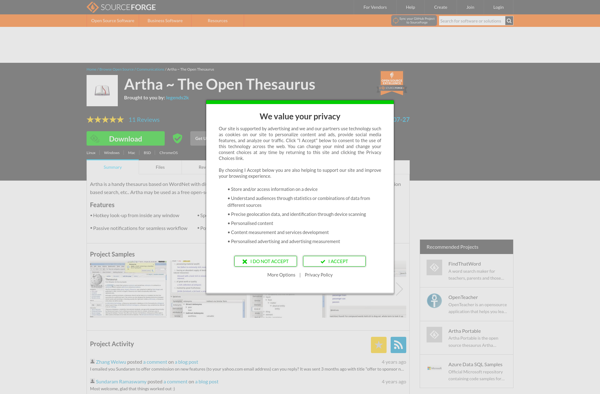
WordWeb
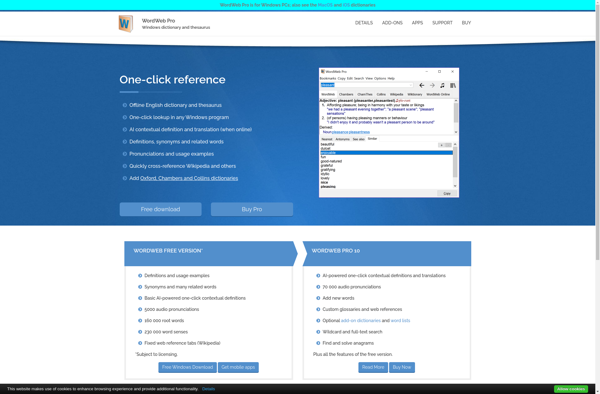
VerbAce
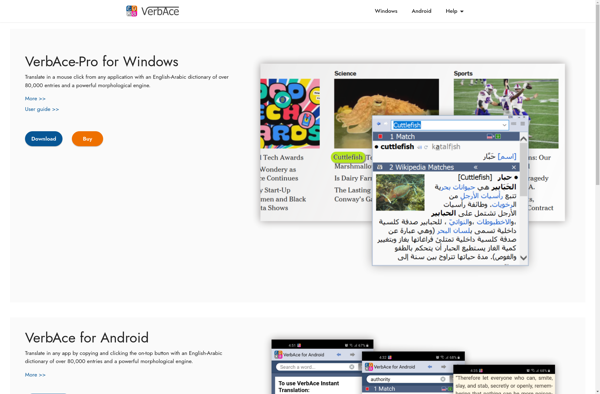
TemaTres
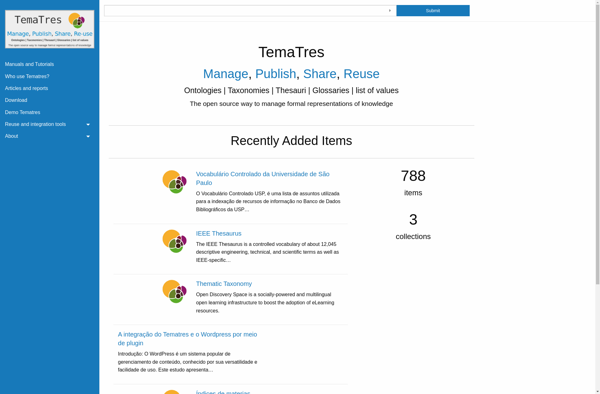
TopWordsLike.com

Moby Thesaurus
Classic Thesaurus
